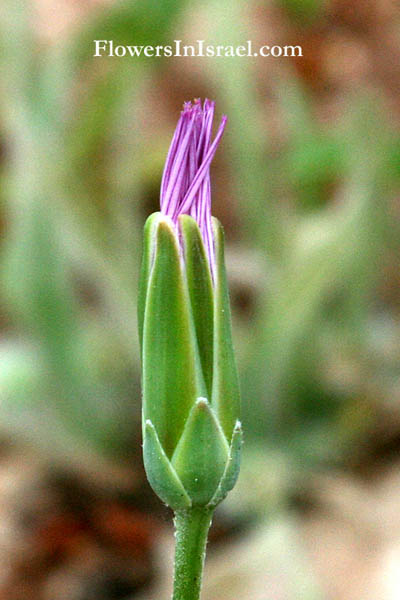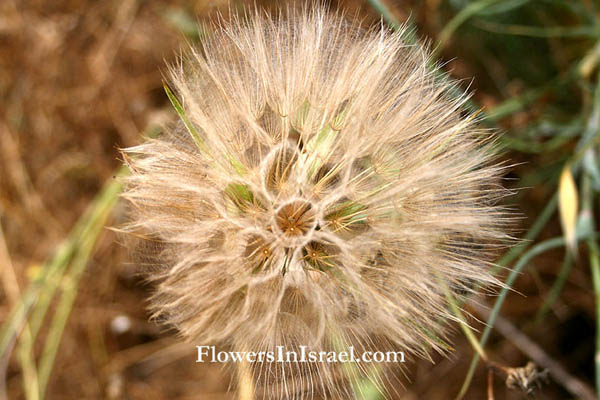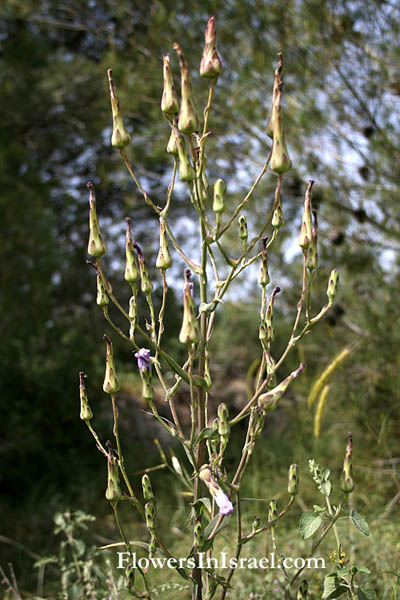Hebrew: חסה כחולת-פרחים, Arabic: سْتِبْتورَمْفوس عُسْقولي
| Scientific name: | Lactuca tuberosa Jacq. | |
| Synonym name: | Lactuca cretica Desf. | |
| Common name: | Tuberous Lettuce | |
| Hebrew name: | חסה כחולת-פרחים | |
| Arabic name: | سْتِبْتورَمْفوس عُسْقولي | |
| Family: | Compositae / Asteraceae, מורכבים |

|
| Life form: | Hemicryptophyte | |
| Stems: | 40-60 cm high; stems solitary, erect; occasionally branched above; often with reddish tinge; containing a milky latex | |
| Leaves: | Alternate, rosette, dissected, pinnate, hairy | |
| Inflorescence: | Divaricate branching, paniculiform, 3-45-capitulate, glabrous, glaucous | |
| Flowers: | Involucral bracts up to 40mm; flowers pale yellow, often tinged greyish or purplish on ligules beneath, or lilac-purple, 2.4-2.8 cm | |
| Fruits / pods: | Achenes compressed, elliptical, 1- to 3-ribbed, minutely hairy, rugulose; beak, pale, very long, slender 1 1/2-3 times as long as body; pappus of 2 rows of simple hairs, inner 10.5-12 mm, copious, outer 0.3 mm | |
| Flowering Period: | April, May | |
| Habitat: | Batha, Phrygana | |
| Distribution: | Mediterranean Woodlands and Shrublands, Semi-steppe shrublands, Montane vegetation of Mt. Hermon | |
| Chorotype: | Med - Irano-Turanian | |
| Summer shedding: | Ephemeral |

Derivation of the botanical name: Lactuca, Latin lact, milk, referring to the milky sap. tuberosa, tuber, a lump, tumor, hump; producing tubers or swollen into a tuber, tuberous. cretica, from the island of Crete. The Hebrew name: חסה, hasa (New Hebrew), lettuce; from Aramaic: חסא, which is of uncertain origin.

|